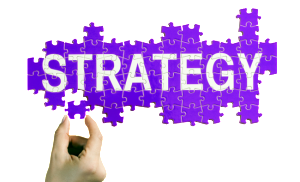According to Investopedia, Financial Health is a term used to describe the state of one’s personal financial situation. Their definition goes on to say that there are many dimensions to financial health, including the amount of savings you have, how much you are setting away for retirement, and how much of your income you are spending on fixed or non-discretionary expenses.

But I believe financial health encompasses more than just how much money you make, have, or spend. While you may have several financial priorities you wish to achieve, it’s important to recognize that there are many different ways to accomplish those priorities. Financial health includes making sure that the financial concepts, strategies, tools, and products you utilize to achieve your financial priorities work together and support one another and seeks out the most financially efficient methods for achieving those objectives.
 Just as there are signs that indicate whether you are physically, mentally, spiritually, or relationally healthy, there are signs that indicate whether you are financially healthy, and just as there are steps you can take to improve your physical, mental, spiritual, or relational health, there are steps you can take to improve your financial health.
Just as there are signs that indicate whether you are physically, mentally, spiritually, or relationally healthy, there are signs that indicate whether you are financially healthy, and just as there are steps you can take to improve your physical, mental, spiritual, or relational health, there are steps you can take to improve your financial health.
Three main pillars to financial health are:
- Maximize monthly cash flow (reducing or eliminating losses)
- Minimize interest expense (tax deductible versus non tax deductible and high interest versus low interest)
- Minimize tax burden (coordination of tax strategies)
There are several strategies you can employ that combine multiple pillars and accomplish many financial objectives simultaneously.
Some signs of financial health include the following:
- An appropriately funded emergency reserve
- Using credit cards, auto loans, and other installment loans, only as part of a strategy to benefit from favorable financing terms (e.g., low or no interest financing and/or financial grace periods)
- Utilizing retirement and other savings vehicles that are safe (minimize losses and reduce or eliminate exposure to potential losses), liquid (allow access with penalty), earn respectable rates of return with little or no risk, and are tax favorable
- Proper protections to shield your family from an extended loss of income or worse, an untimely death
Some steps you can take to improve your financial health include the following:
- Establish an emergency reserve
- Consolidate your non tax deductible debt, eliminate your mortgage insurance, and/or reduce your interest rate by refinancing your existing mortgage, even if you save as little as $100 or $200 per month
- Utilize as many legitimate tax deductions and strategies as possible to reduce your tax burden. The IRS gives us choice and control as to how, when, or if we pay tax on our accounts. If we don’t understand that then we can end up doing what everybody else does and it can cost us a fortune
- If you believe income tax rates in the future will be higher than they are today and you contribute to a tax-postponed retirement vehicle, such as a 401(k), redirect any contributions above the employer match to an after-tax retirement vehicle, such as a Roth 401(k) or Roth IRA
 While it is critically important to begin taking steps to improve your financial health as soon as possible, it is equally important to eliminate tactics that counteract and undermine other tactics you may be employing to strengthen your financial profile.
While it is critically important to begin taking steps to improve your financial health as soon as possible, it is equally important to eliminate tactics that counteract and undermine other tactics you may be employing to strengthen your financial profile.
Let me illustrate with two common examples:
If you contribute to a 401(k), IRA, 403(b), or any other type of tax advantaged retirement vehicle while you simultaneously accelerate the payoff of tax advantaged debt, such as a mortgage, the two strategies are cancelling each other out. That is not to say that paying off your mortgage should not be a goal. Just that there are better ways to do it.
If you carry credit card balances from month to month without paying them in full, you are likely paying between 12% and 30% on that debt and it is not tax deductible. If you carry auto loan balances you are likely paying between 0% and 6% on that debt and it is not tax deductible either. Sending extra money to reduce the interest you pay on a mortgage that is probably at or below 5% and is tax deductible before paying off credit card and/or auto loan debt is counterproductive and inefficient.
Doing either of these actions is like heating your house with the windows open. Yet, people do this every day and most have little or no idea that they are doing it, and it is costing them tens of thousands, and in many cases, hundreds of thousands of dollars. I work with my clients to coordinate all aspects of their finances so they are working together versus cancelling each other out.
Financial health is more of a journey than a destination. If you would like our help improving your financial health call us to schedule a time to discuss your specific situation.
Leave a Comment